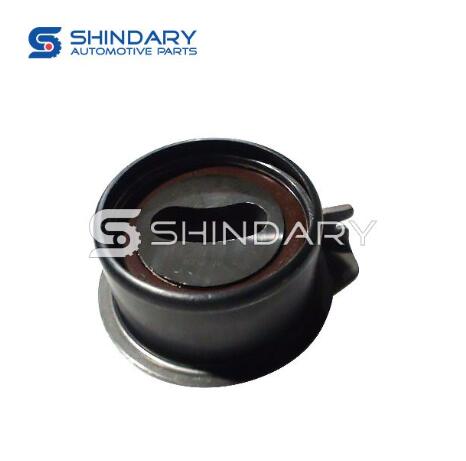Can You Drive with a Bad Timing Belt Tensioner?
Introduction
When it comes to vehicle maintenance, one of the critical components that ensures the smooth operation of the engine is the timing belt tensioner. This small yet vital part plays a crucial role in maintaining the correct tension of the timing belt, which in turn keeps the engine's timing synchronized. However, what happens if you find yourself with a bad timing belt tensioner? Can you still drive your car safely? In this comprehensive guide, we will explore the implications of a faulty timing belt tensioner and provide valuable insights to help you make an informed decision.
Understanding the Timing Belt Tensioner
Before we delve into the effects of a bad timing belt tensioner, it's essential to understand its purpose and functionality. The timing belt tensioner is responsible for maintaining the optimal tension in the timing belt, ensuring that it remains securely in place. This tension is vital as it keeps the camshaft and crankshaft in sync, allowing the valves and pistons to move harmoniously. Without proper tension, the timing belt can slip, causing significant engine damage.
Signs of a Bad Timing Belt Tensioner
Identifying a failing timing belt tensioner is crucial to prevent potential engine issues and ensure your safety on the road. Here are some common signs that may indicate a problem with your timing belt tensioner:
Strange Noises: A worn-out or faulty tensioner can produce unusual noises such as squeaking, rattling, or grinding. These sounds often arise from the tensioner's inability to maintain the correct tension on the timing belt.

Vibration and Engine Misfires: A malfunctioning timing belt tensioner can disrupt the precise synchronization of the engine components, leading to engine misfires and vibrations. If you notice your engine running roughly or experiencing frequent misfires, it's advisable to have your timing belt tensioner inspected.
Visible Damage or Wear: Regular inspections under the hood can help identify visible signs of damage or wear on the timing belt tensioner. If you notice any cracks, fraying, or signs of oil leakage, it's crucial to address the issue promptly.
Timing Belt Slippage: A worn-out tensioner may fail to keep the timing belt in place, resulting in slippage. If you notice the timing belt slipping or exhibiting an uneven appearance, it's a clear indication that the tensioner needs attention.
The Risks of Driving with a Bad Timing Belt Tensioner
While it may be tempting to ignore a faulty timing belt tensioner and continue driving, doing so can have severe consequences. Here are the risks associated with driving with a bad timing belt tensioner:
Engine Failure: A bad timing belt tensioner can cause the timing belt to slip or jump teeth. This misalignment can lead to the valves and pistons colliding, causing severe damage to the engine. In some cases, the engine may even fail completely, necessitating expensive repairs or engine replacement.
Stranded on the Road: Ignoring the warning signs of a failing tensioner can result in unexpected breakdowns and leave you stranded on the side of the road. This not only disrupts your daily routine but also poses a safety risk, especially if you get stuck in a remote or hazardous location.
Increased Repair Costs: Addressing a damaged timing belt tensioner promptly is crucial to prevent further damage to the engine. Ignoring the issue can result in additional problems, such as bent valves, damaged pistons, or even a broken timing belt. These repairs can be significantly more expensive than fixing the initial tensioner problem.
Safety Concerns: A failing auto timing belt tensioner compromises the performance and reliability of your vehicle. It affects the engine's timing, which can impact the overall drivability, power output, and fuel efficiency. Continuing to drive under such conditions may compromise your safety and that of other road users.
Conclusion
In conclusion, driving with a bad timing belt tensioner is a risky proposition that can lead to severe engine damage, unexpected breakdowns, and compromised safety. If you notice any signs of a failing tensioner, such as strange noises, engine misfires, visible damage, or timing belt slippage, it's crucial to address the issue promptly. Regular maintenance and inspections by a qualified mechanic are essential to ensure the proper functioning of the timing belt tensioner and avoid potential engine problems.
Remember, prevention is always better than cure when it comes to your vehicle's well-being. Taking timely action to rectify a bad timing belt tensioner can save you from costly repairs, inconvenience, and potential accidents. So, if you suspect that your timing belt tensioner needs attention, don't delay—consult a professional mechanic to assess and resolve the issue promptly.

